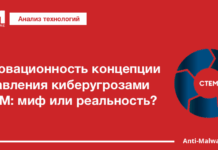Наши популярные онлайн курсы
We must accept as a necessity that economy is mainly a subject of human interactions and with this it is clearly a part of social and cultural science which (actually) tries to use math tools to build prediction and equilibrium models (of uncertain events). This certain trait of economics, being a social and cultural science, makes it difficult to have a “healthy” match to mathematics since mathematics is an exact science based on logic with its needed axioms, definitions and theorems. This is the reason why mathematics as an exact science is just not able to comprise the full extent of the social and cultural behaviour of human interactions.

This is a must watch session for anyone working in risk management and a great foundation for the whole week. Make sure you sign up!
About Hakan
1995 – 2000: Studied Math, Physics and Economics, MSc. in Math, Goethe University in Frankfurt am Main (Germany), PRM (PRMIA). Since 1998 active in financial services and institutes with focus on – Quantitative Finance/Financial Engineering, – Rating, Scoring, PD and LGD Models – VaR Models for Credit, Market, Liquidity and Operational Risk – AMA Models for Operational Risk, – Stress Test Models (all risk types), – Reverse Stress Test Models (all risk types), – Limit Allocation Models, – Credit Risk Management, – Operational Risk Management, – Market Risk Management, – Liquidity Risk Management, – Business Risk Management, – Fund Risk Management, – Real Estate Risk Management – Basel II/III – CRR/CRD – ICAAP/ILAAP – Banking Recovery Plan (BRRD) – AIFMD and UCITS Since 2012 Speaker, Chairman and Workshop Trainer in various Risk Management Conferences (by Fleming Europe, GLC Europe, TCCT etc.) for Stress Test, Reverse Stress Test, Risk Modelling, Risk Strategy and Regulation Impact. 2013, Lecturer for Banking Risk Management, Frankfurt School of Finance & Management, Private University in Frankfurt am Main. Since 2011 Head of Risk Management. Since 2015 Chief Risk Officer/Conducting Officer and Senior Executive.

































